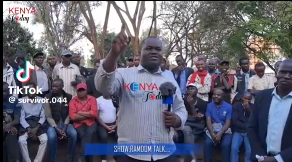President William Ruto of Kenya has recently embraced the nickname “Zakayo,” a term introduced by political opponents and the public as a commentary on his administration’s tax policies.
The name references the biblical character Zacchaeus (translated as “Zakayo” in Swahili), known as a chief tax collector who was wealthy yet unpopular due to his profession.
Ruto’s Finance Bill, which proposed various tax increases, was met with public criticism, prompting some Kenyans to liken him to Zakayo.
Ruto himself acknowledged the nickname, even joking with Kenya Revenue Authority staff about hosting a “Tax Collectors’ Day” at State House, showing he was aware of the label’s origins.
This nickname is part of a series of monikers Ruto has accumulated, reflecting his leadership style and policy decisions.
Another popular nickname, “Mr. Next Week,” emerged as a critique of his repeated promises to reduce the high cost of essential goods, with Kenyans humorously noting that his promises often shifted to “next week” without immediate action.
Additionally, Ruto’s frequent church attendance and religious references in speeches have earned him the title “Nabii” (Prophet), highlighting his tendency to use faith as a pillar of his political identity.
In embracing these names, Ruto demonstrates an ability to connect with public sentiment, even when it involves criticism.
For instance, his frequent travels, particularly early in his term, led to the “Flying Man” nickname, as Kenyans jokingly questioned the benefits of his diplomatic tours.
Ruto’s response to these labels—whether humorous, reflective, or defensive—reflects his keen awareness of the public’s views and his nuanced approach to handling both critique and support from the Kenyan populace.


